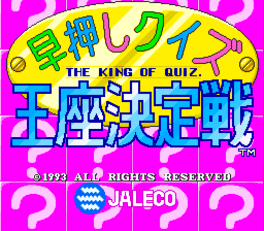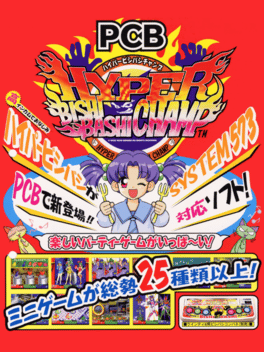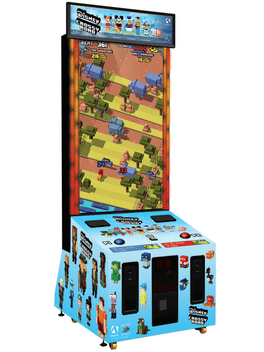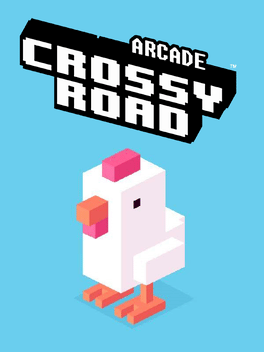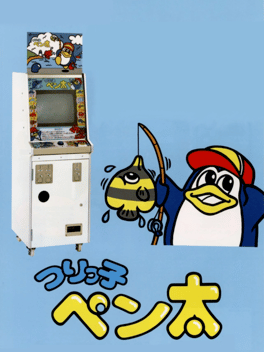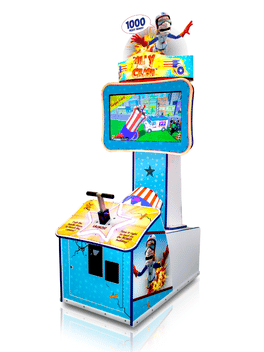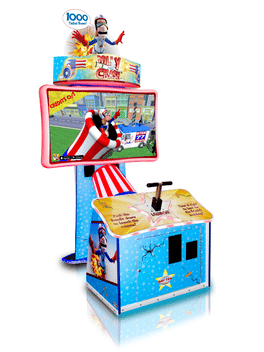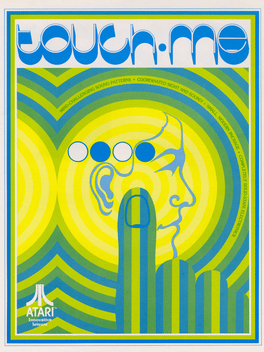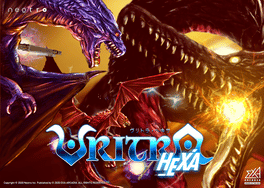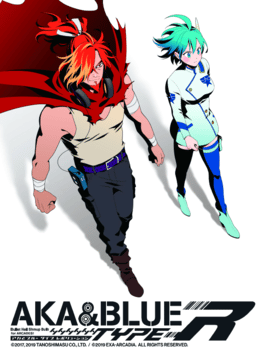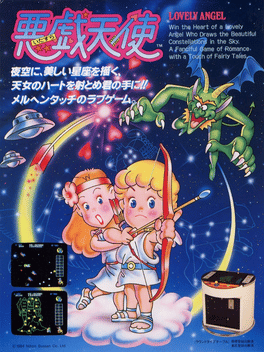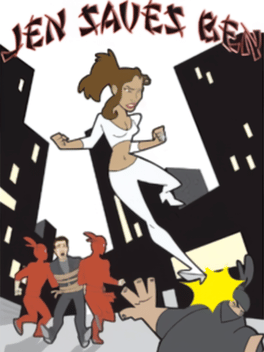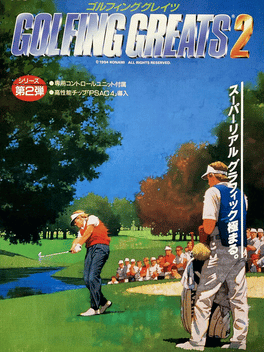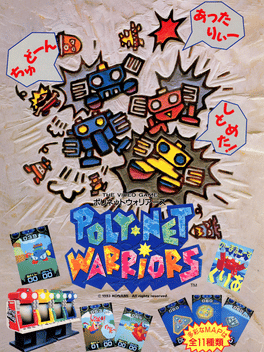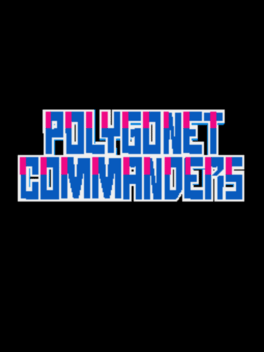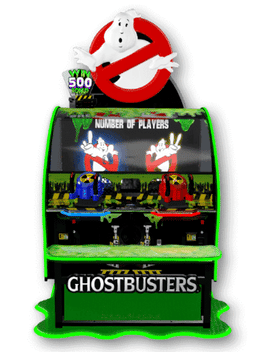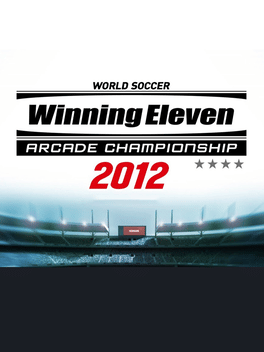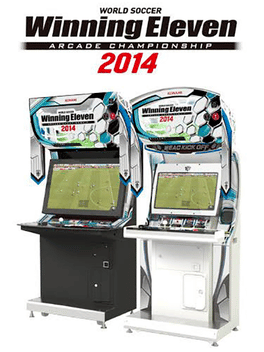Most Popular Arcade Games - Page 42
-
Crossy Road Arcade
2017
Crossy Road Arcade
2017
Play with your favorite Disney character and hop your way through busy lines of traffic. -
Arcade Crossy Road
2016
Arcade Crossy Road
2016
Crossy Road Arcade is a 2 player video redemption game. Players must navigate their way across busy roads, train tracks, and over rivers to go as far as they possibly can. With each successful jump, players are awarded a ticket. Crossy Road is an arcade video game released on 20 November 2014. It was developed and published by Hipster Whale, with the name and concept of the game playing on the age old joke "Why did the chicken cross the road?" The game has been described as "endless Frogger." -
Tsurikko Penta
1991
-
Pop'n Music UniLab
2022
Pop'n Music UniLab
2022
The 27th main installment of the Pop'n Music series, featuring a research laboratory theme. -
Willy Crash Mini
Experience the same gameplay of the original Willy Crash, just with a smaller cabinet and a 32″ screen. Willy Crash “Mini” is more than one-and-a-half feet narrower, 10 inches shallower, and almost one foot shorter than the original version. The software and even the plunger are the same; maintaining the same player experience but allowing it to fit into even more locations! -
Willy Crash
Detonate the TNT plunger to launch Willy Crash into a 3D cityscape. Aim for the tops of buildings to score big and watch Willy boogie down in a lively bonus celebration! Miss and he will hilariously crash into a number of cringe-worthy, interactive obstacles. Can losing be as much fun as winning? It just might be with Willy Crash! -
Touch Me
1974
Touch Me
1974
Touch me challenges the player to remember the sequence of sight and sound, and correctly repeat the pattern. The drop of the quarter in the top-mounted acceptor activates the computer to present a single-tone sound. When the sound occurs, the corresponding button lights to give a visual clue. Then the game pauses long enough for the player to "confirm" the sound to the computer by pressing the same button that lit. Oops! Wrong button? ERROR number one… and a lighted window tells the player he's goofed. Then another chance… the sound and lighted button are repeated by the computer. Another pause … right! You've hit the right button(s) in the right sequence, and the game goes on to another sound sequence. Every correct player response adds an additional sound/note to the sequence. "Beep – beep – bloop – beep – bloop" … Did you correctly repeat those sounds when the buttons lit? Sorry, only three errors per game. You'll have to insert another 25¢ and try again! -
Vritra Hexa
2020
-
Aka & Blue Type-R
2019
-
Itazura Tenshi
1984
Itazura Tenshi
1984
Control an angel and connect the stars to complete the constellation. Various enemies that get in the way can be defeated using the bow. When all the constellations are completed, RAN and LUM will appear. Make them hug well to get a bonus. -
Jen Saves Ben
2004
-
Golfing Greats 2
1994
Golfing Greats 2
1994
Sequel to Golfing Greats, featuring similar gameplay and vastly improved graphics with 3D scrolling and panning. -
Poly-Net Warriors
1993
-
Polygonet Commanders
1993
-
The Electric Yoyo
1982
The Electric Yoyo
1982
The goal of the game is to collect all dots on the playfield with your yo-yo. In each level the dots are placed in different patterns and the numbers of enemies vary. There are two types of enemies. One type (that you may not touch at all) puts electrical charges on the dots, which you have to catch. The other type is also deadly, unless you hit it when you are charged, which gives you bonus points. You can move your yo-yo in four different directions and it grabs onto the dot which is nearest in each direction. The longer the distance to the next dot, the more points you get. -
Ghostbusters Arcade
2016
Ghostbusters Arcade
2016
Ghostbusters Arcade is a video redemption game developed by the arcade masters at Play Mechanix for ICE. Players confront ghosts on two levels which are based on events from the first two Ghostbuster films. They then have to stop the Stay Puft Marshmellow man for the chance at a big ticket bonus!
